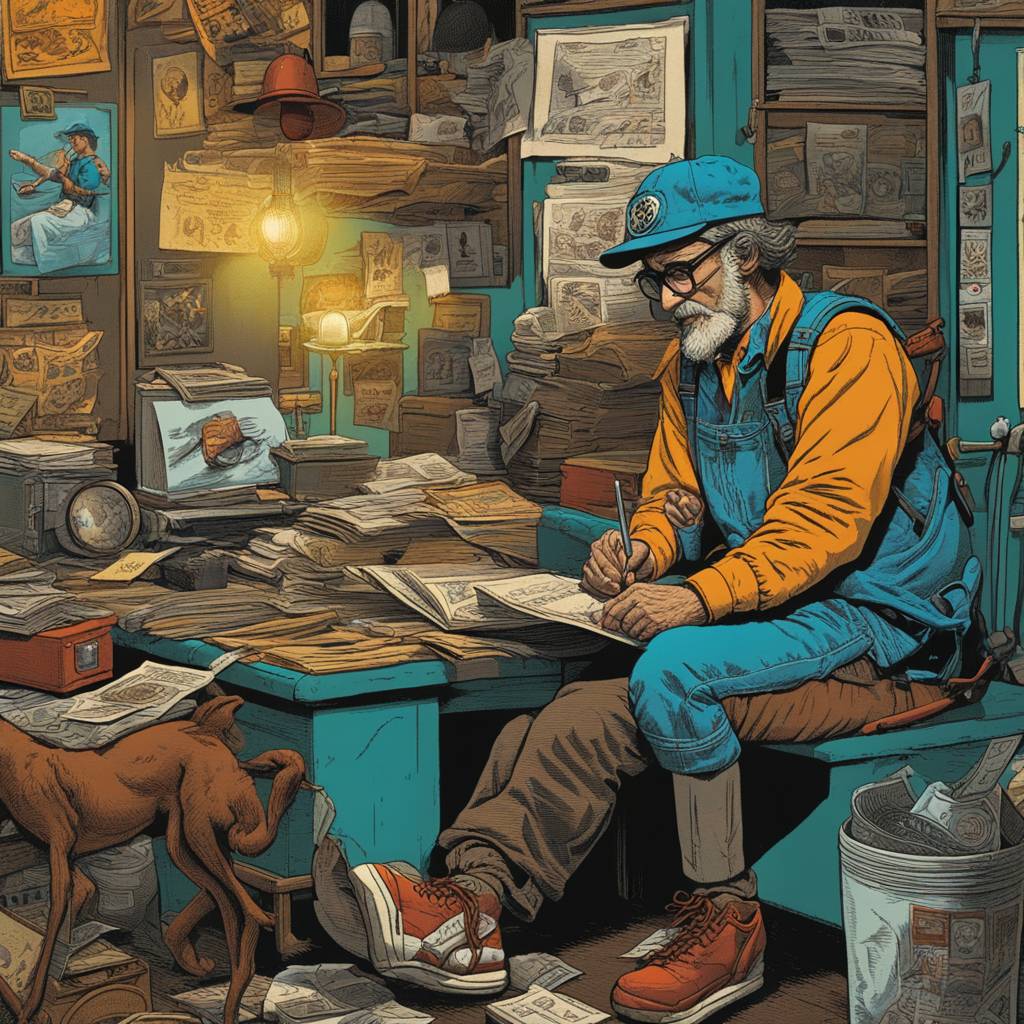The comics artist Ed Piskor, known for his work on “Hip Hop Family Tree,” passed away after an accusation of sexual misconduct led to the postponement of an exhibition of his work in Pittsburgh. While the cause of his death was not disclosed, many interpreted a note he posted on social media as a suicide note. Piskor apologized for inappropriate messages to a teenager in 2020 and admitted to a consensual relationship with another artist. His agent described him as devastated by the situation, feeling that his career was over and his work would be deemed objectionable.
Piskor’s exhibition was put on hold following the accusations against him, with the Pittsburgh Cultural Trust stating that they took the allegation very seriously. The trust expressed deep sadness at the news of Piskor’s passing, offering condolences to his family and friends. “Hip Hop Family Tree,” which he painstakingly researched, wrote, illustrated, lettered, and colored, was highly acclaimed and won awards. The rapper Chuck D praised Piskor’s work for its informative depiction of hip-hop history.
In addition to his work on “Hip Hop Family Tree,” Piskor created “X-Men: Grand Design” for Marvel, offering a chronological retelling of X-Men history in a visually striking format. He was known for his boundless enthusiasm for comics, as well as his popular podcast “Cartoonist Kayfabe” with artist Jim Rugg. Friends and colleagues remembered him as a passionate and dedicated artist who loved all aspects of comics. Gary Groth, co-founder of Fantagraphics, described Piskor’s love for comics as indiscriminate and all-consuming.
In his note, Piskor expressed dismay at the postponement of his exhibition and criticized what he saw as online lynch mobs contributing to his death. The death of the 41-year-old artist left many in shock, as he had been a prominent figure in the comics community with a dedicated fan base. The Pittsburgh Cultural Trust, which had canceled the exhibition, reiterated its serious approach to the allegations against Piskor and expressed sorrow at his passing. Piskor’s relatives declined to comment on his death, and the chief of the Munhall Police Department confirmed he had died outside of Pennsylvania.
Piskor’s death cast a shadow over the comics world, with many mourning his loss and reflecting on his impact on the industry. The accusations of sexual misconduct and the subsequent fallout raised questions about accountability and cancel culture in the arts. Piskor’s agent spoke of his devastation over the situation and the feeling that his career had come to an end. Despite the controversy surrounding his final days, Piskor will be remembered for his pioneering work in comic art, particularly his contributions to the history of hip-hop and X-Men.








